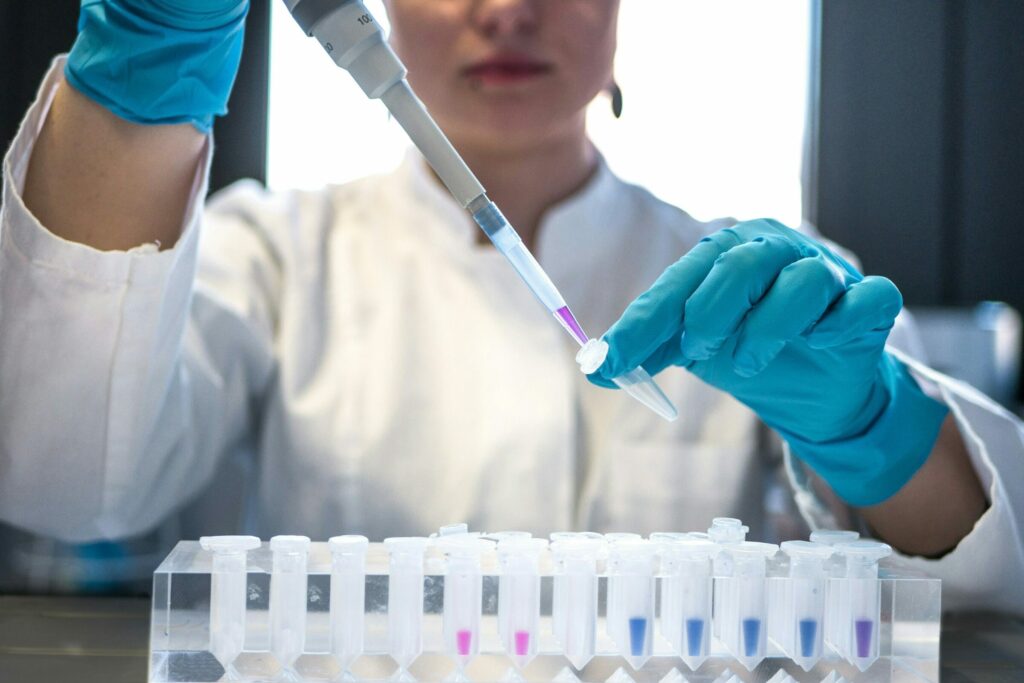
Coworking reshaped the modern office, and now it’s beginning to reshape science. Startups and research teams no longer have to pour millions into building laboratories before their first experiment. Instead, they can tap shared, fully equipped spaces that deliver everything from biosafety infrastructure to mentoring networks—a model increasingly referred to as Science-as-a-Service.
This approach lowers barriers to entry and allows scientists to move faster. Access to certified facilities such as a BSL2 lab makes it possible for even small teams to work safely with more complex materials from day one. For countries building their innovation economies, shared lab models also unlock wider participation in biotech and life sciences research. Singapore and other regional hubs are already leaning into this momentum, and the model is expected to keep evolving. What lies ahead is not just about lowering costs but reimagining how science is organised and delivered.
Let’s explore a few key trends surrounding coworking lab models that the science community would do well to watch.
The Rise of Cloud-Based Labs
Imagine designing an experiment from your laptop at midnight and receiving results the next morning, produced by automated equipment housed in a distant facility. Cloud laboratories are turning this into reality, allowing researchers to conduct experiments remotely through software platforms.
Coworking labs that integrate cloud-based experimentation can give their members access to capabilities that extend beyond the walls of their building. Teams can run high-throughput assays, access specialist equipment they do not own, and collaborate globally in real time. This democratises science by expanding access, while also introducing new questions around data management and digital infrastructure that coworking operators will increasingly have to solve.
Specialisation and Vertical Lab Communities
The days of one-size-fits-all coworking labs are quickly fading. Many facilities are tailoring their spaces to support highly specific scientific fields, such as synthetic biology and cell and gene therapy. These labs concentrate infrastructure and expertise in a defined area; by doing so, they help startups bypass costly trial and error while creating an environment for more targeted collaboration.
The appeal for scientists is clear: specialised coworking spaces often come with niche equipment, safety standards, and even regulatory frameworks pre-establshed. For operators, on the other hand, this kind of vertical focus attracts a curated mix of tenants who are more likely to cross-pollinate ideas and form partnerships. The result is not just space sharing but the creation of dynamic communities built around common scientific goals.
Digital Integration and Data Infrastructure
In a bustling coworking lab, dozens of teams might be juggling equipment schedules, inventory lists, and compliance requirements at once. Without robust systems, confusion and lost time are common risks. Digital platforms are increasingly stepping in to streamline the complexities that typically arise in crowded laboratories by offering everything from online booking of shared instruments to automated safety checklists.
The future of coworking labs will likely hinge on how well digital tools can be integrated into daily operations. Lab information management systems (LIMS), blockchain-style chain-of-custody records, and AI-driven analytics could all play a role. These tools not only improve efficiency but also create an auditable trail of activity that builds trust among tenants, regulators, and investors. As science becomes more data-intensive, the digital backbone of a shared lab may prove as important as its physical infrastructure.
Sustainability and Greener Lab Design
Labs are among the most resource-heavy workplaces. They consume up to ten times more energy per square metre than traditional offices. Their inevitable environmental footprint puts pressure on coworking operators worldwide to prioritise sustainability for both ethical and cost-related reasons. Shared spaces can consolidate equipment use, reduce waste, and implement greener utilities such as energy-efficient HVAC systems and modular water recycling.
Governments are also signalling the importance of greener scientific infrastructure. In Singapore, the Green Plan 2030lays out ambitious national targets for carbon reduction and sustainable resource use. Aligning with such policy directions is not only about compliance but also about competitiveness for coworking labs. Facilities that can demonstrate greener operations will be better positioned to attract funding, satisfy regulators, and reassure tenants that their research environment is built for the long term.
Clearer Rules for Global Collaboration
A breakthrough in the lab means little if regulations differ widely across borders. Lack of alignment only slows down how discoveries can be tested, approved, or scaled globally. Coworking labs often host international teams and projects, so inconsistent biosafety or intellectual property rules can become a serious barrier. Operators must juggle the technical needs of their tenants alongside the shifting compliance frameworks that govern their work.
The future of Science-as-a-Service will therefore depend heavily on clearer, more harmonised policies. Standardised biosafety levels, transparent IP protections, and supportive government incentives can all help these shared spaces thrive. Countries that provide regulatory clarity are likely to become magnets for biotech innovation, while labs operating in more fragmented environments may struggle to attract the same level of investment or international collaboration.
All in all, coworking labs have moved beyond being a stopgap for cash-strapped startups. They are becoming critical infrastructure for a new era of science that values speed, collaboration, and responsible resource use. The Science-as-a-Service model is still evolving, but one thing is clear: the most successful labs of the future will be those that pair cutting-edge facilities with frameworks that encourage trust, sustainability, and shared progress.



